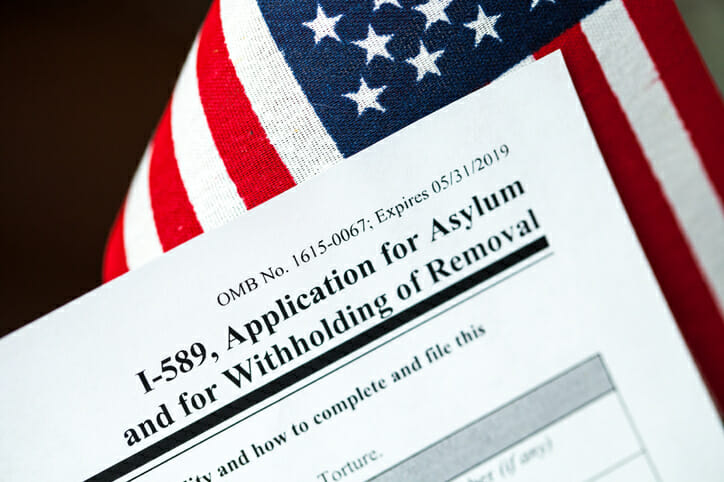Pending Asylum Applications and Employment Authorization Document (EAD)

Pending Asylum Applications and Employment Authorization Document (EAD)
On June 26, 2020, DHS issued regulations that will take effect on August 25, 2020, that will make it much more difficult for those with pending asylum applications to obtain an Employment Authorization Document (EAD).
The new rules will:
- Increase the waiting time from 150 days to 365 days for an asylum applicant to be eligible to apply for an initial EAD. This will apply to any asylum seeker who has not accrued 150 days on their “clock” before August 25. The new rule will therefore affect anyone whose asylum application was received on or after March 28, 2020, which is 150 days before the effective date of the new rule.
- Prevent anyone who enters without inspection after the August 25 effective date from receiving an asylum pending EAD. This will not apply to renewals of EADs for individuals who entered without inspection before August 25, 2020. There are limited exceptions to this new bar to work authorization.
- Prevent asylum seekers who file more than one year after entering the United States from obtaining an asylum-pending EAD until an adjudicator finds a one-year filing deadline exception. (Note: this change will affect even those in valid status who have a clear extraordinary or changed circumstances exception.)
- Eliminate the “asylum clock” and instead deny asylum-pending EADs for “unresolved applicant delays.” These delays are quite broad and can include: (1) a request to amend a pending application for asylum or to supplement such an application if “unresolved” on the date the (c)(8) EAD application is adjudicated; (2) an applicant’s failure to appear to receive and acknowledge receipt of the decision following an interview, and (3) submitting additional documentary evidence fewer than 14 calendar days before the asylum interview or a request for an extension to submit additional evidence
- Prevent asylum seekers with certain criminal convictions (aggravated felonies and certain lesser convictions) from obtaining an asylum-pending EAD. This applies to particularly serious crimes and serious non-political crimes where the conviction or offense triggering the bar occurred on or after August 25, 2020. The aggravated felony bar applies to any conviction regardless of the conviction date. See8 C.F.R. § 208.7(a)(1)(iii)(A)-(C).
- Allow USCIS to limit validity periods of EADs.
- Automatically terminate EADs following asylum office denials; and terminate EADs 30 days after immigration judge denials unless the case is appealed to the Board of Immigration Appeals.
- Prohibit EAD eligibility for individuals paroled into the United States following credible/reasonable fear interviews.
- Prohibit EAD eligibility for individuals with pending federal court petitions for review.
Contact our experienced immigration lawyers in New York today at 718-407-0871 or online at https://www.prizant-law.com if you need help with Asylum Applications and Employment Authorization Document (EAD) or any other solutions to your immigration problems.
Contributed by Svetlana Prizant, Esq., an Award Winning New York Immigration Lawyer
Call or visit Prizant Law at:
Prizant Law
118-21 Queens Blvd Suite 507
Forest Hills, NY 11375
(718) 407 0871
